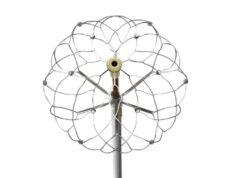 Medtronic has received US Food and Drug Administration (FDA) approval for a portfolio of quadripolar cardiac resynchronization therapy-pacemakers (CRT-Ps) that are designed to improve therapy delivery for patients with heart failure. These devices also allow patients to receive magnetic resonance imaging (MRI) scans in either 1.5 or 3T machines. The Percepta Quad CRT-P MRI SureScan, Serena Quad CRT-P MRI SureScan and Solara Quad CRT-P MRI SureScan are expected to be available commercially in the USA in early summer 2017.
Medtronic has received US Food and Drug Administration (FDA) approval for a portfolio of quadripolar cardiac resynchronization therapy-pacemakers (CRT-Ps) that are designed to improve therapy delivery for patients with heart failure. These devices also allow patients to receive magnetic resonance imaging (MRI) scans in either 1.5 or 3T machines. The Percepta Quad CRT-P MRI SureScan, Serena Quad CRT-P MRI SureScan and Solara Quad CRT-P MRI SureScan are expected to be available commercially in the USA in early summer 2017.
“These new pacemakers allow clinicians to provide more personalised therapy treatment options,” says Anne B Curtis, chair of the Department of Medicine, University at Buffalo, USA. “Their ability to automatically adjust pacing to meet the patient’s needs, even those who are among the most difficult to treat, is an example of how advanced implanted heart device technology has become.”
The Percepta Quad CRT-P features the EffectivCRT Diagnostic, which is designed to automatically determine the effectiveness of each left ventricular pace, and the EffectivCRT during atrial fibrillation (AF) algorithm, which automatically adjusts pacing rates during AF. It also includes VectorExpress 2.0, an automated in-office test that reduces lead programing to two minutes, and reveals clinically actionable information to help physicians select optimal pacing configurations for each patient.
The Percepta Quad and Serena Quad CRT-Ps also feature the AdaptivCRT algorithm, which has been shown to reduce a patient’s odds of a 30-day heart failure readmission by 59%, and has demonstrated a 46% reduction in AF risk compared to echo-optimized biventricular pacing. Multiple point pacing, which can stimulate the left ventricle (lower chamber) at two sites, is also available on both devices.
All three CRT-Ps also are compatible with Attain Performa MRI SureScan quadripolar leads, which include short bipolar spacing to reduce the occurrence of phrenic nerve stimulation, steroid on all electrodes, and three shapes for varying patient anatomies. They also employ the company’s PhysioCurve contoured design, which reduces overall skin pressure compared to non-contoured devices, for enhanced patient comfort and improved cosmetic appearance of the implant site. This CRT-P portfolio received CE mark in February 2017.









